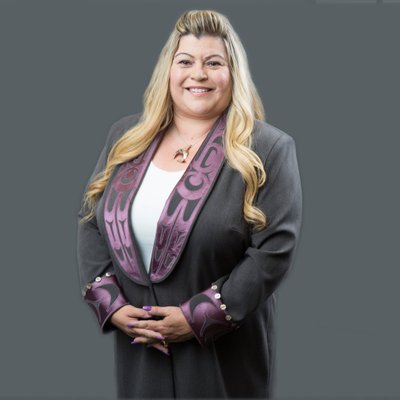
VICTORIA — A deal between Indigenous leaders and the federal and British Columbia governments provides a clearer path to reaching 10 new treaty agreements within the next two years and 20 more soon after, says the head of the B.C. Treaty Commission.
Chief commissioner Celeste Haldane said Monday the accord pledges to speed up and transform negotiations.
“Part of the commitment coming out of the accord is that there’s the political will to continue to expedite negotiations,” she said. “With the commitment to expedite, I would hope that we will see new results, and with that political will and the commitment that’s coming from all three parties, I imagine that we will.”
Haldane said 10 sets of B.C. treaty talks involving 27 First Nations are on the cusp of reaching the final agreement stage within the next two years and there are 20 other sets of negotiations also close to final agreements.
Ottawa, B.C. and the First Nations Summit, which represents B.C. First Nations in treaty negotiations, said Saturday they signed an accord that recognizes the need for a different approach to negotiations that results in faster treaties where all sides spend less time disputing the rights and title of Indigenous Peoples.
The province didn’t recognize Indigenous title and saw no need for treaties in 1871 when it joined Canada. Today, there are only a few dozen treaties in a province with more than 200 First Nations.
B.C. started a treaty negotiation process in the early 1990s, but after spending hundreds of millions of dollars in legal and other costs only seven First Nations have reached final agreements.
First Nations Summit spokeswoman Cheryl Casimer said the accord offers negotiators a smoother process that sets the stage for more deals over less time.
She described the current negotiating process as a bad relationship where poor communication and refusal by the federal and B.C. governments to address long-standing issues resulted in slow-moving or stalled talks.
“It’s an ongoing dialogue that needs to happen, like a marriage,” said Casimer. “There are little pieces all along the way that are finally getting us to where we need to be and want to be.”
Casimer said she believes many B.C. First Nations are close to reaching final treaty agreements, but she could not confirm the dozens of potential deals mentioned by Haldane.
“Ideally, those would be nice,” she said. “If people are ready and in the queue to finalize the last of their details and be able to sign off, perfect. If the accord affords them the opportunity to do that then that’s best for all of us.”
Carolyn Bennett, the federal minister of Crown-Indigenous relations, said in a statement the accord signals the federal government is serious about removing obstacles to treaty talks in B.C.
“This new approach reflects a recognition of rights-based approach that will help create an environment that will accelerate and build momentum towards concluding treaties and negotiated agreements in British Columbia,” she said.
B.C. Indigenous Relations Minister Scott Fraser said the goal is to negotiate treaties based on flexible, adaptable relationships that don’t freeze rights in time.
“I’ve always figured the treaty process was never etched in stone,” he said. “It was supposed to be dynamic and develop with changes that were happening in society, with governments, with law, with United Nations declarations.”
But the B.C. treaty process stagnated over the years, Simpson said.
“It has been relatively status quo. It just hasn’t kept up where it should be.”